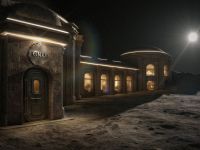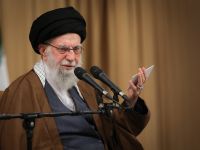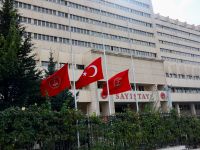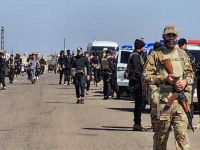Workshops finds Qatar Foundation’s Research Leadership programme a unique investment towards achieving national vision
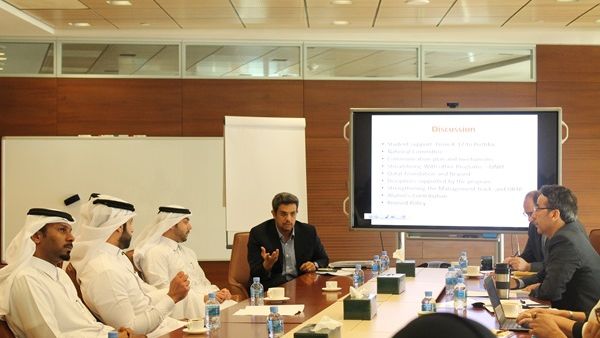
Senior officials fromQatar Foundation Research and Development (QF R&D) hosted a workshop recently to discuss past experiences and future opportunities for the Qatar Research Leadership Program (QRLP). The workshop was a great opportunity for QRLP alumni, directors, and managers from different research offices and centres to share their insights.
Falling under one of the main pillars of Qatar Foundation for Education, Science and Community Development (QF), QRLP was established in 2008 to help fill a gap by creating an R&D workforce for the country, beginning with a research management track training programme. It remains Qatar’s only programme that provides formal training in research management. It has grown to incorporate support for science-oriented masters and doctoral studies, followed by undergraduate and, most recently, post-doctoral studies.
QRLP currently supports 164 students, both nationals and non-nationals, in undergraduate through post-doctoral programmes in institutions across Qatar, like Qatar University, Hamad bin Khalifa University, QF’s partner universities, and other elite international universities. It provides support to students to enter, move through, and move beyond the educational pipeline. It prepares junior students as they seek university admission, and it helps prepare students accepted into the programme for their upcoming studies, for example through internships in R&D settings. It also provides students in the programme with a constant point of contact for mentorship and support, and it places students in research jobs once they complete their degrees.
QRLP is unique in Qatar: it is the only initiative that enables students to pursue science and research-oriented degrees from undergraduate through graduate levels across a broad range of scientific disciplines and in a broad range of institutions of higher learning. As such, it is the only programme to feed the entire pipeline of the innovation value chain, which aims to take basic scientific research to applied and translational research to products or processes that can be used to improve life in Qatar. Therefore, QF’s QRLP is a lynchpin for R&D contributions toward Qatar’s National Vision for 2030, and to transform itself into a knowledge-based economy.
A worthwhile investment in the country’s future
The ten QRLP alumni who participated in the workshop have since reflected on their own experiences. They reported on an internal assessment and ideas to move the programme forward. The first finding is that it “is an investment, not merely an expense,” according to Abdulrahman Al-Qahtani, a graduate scholar, who reflected the group’s view that the human capital trained through the initiative should be viewed as a national asset. Another alumnus, Talal Al-Hothal, currently with Education Above All, noted that the programme itself is a “renewable source of human capital,” training the participants to be future R&D leaders.
Reflecting on their own experiences, QRLP alumni identified opportunities to strengthen the initiative. Broad and proactive outreach, for example, to schools, teachers, parents, and students, would help attract the best students for research training at university level and beyond. Once in the programme, formal internships and formal career guidance would further students’ training experience. An online forum would provide a platform for current trainees and alumni to network, offer and receive mentorship and advice, solve problems, and share success stories. More broadly, these graduates see the future of the programme as serving the wider R&D needs across Qatar, to include QF and beyond. They also see the need to support social sciences, arts, and humanities, which is one of the four key pillars of the country’s national research strategy. As one of the programme’s first graduates, Haya Al-Ghanim, Director of Innovation at Qatar Science Technology Park, noted “Trainees can and should be given opportunities for leadership—to change something or help improve something.”
“A lifeline for research capacity development”
Workshop participants noted that QRLP is unique in many important ways, including the high quality of trainees and management team that guides students into and through their formal degrees. The programme offers support, providing role models and inspiring others to pursue and excel in a research career, from management to research, and from the natural and technical sciences to the social sciences.
Research institute leaders offered insights from their own experiences working with QRLP trainees and the graduates subsequently employed on their permanent staff. Dr Hilal Lashuel, who worked in a number of elite international R&D institutions before becoming Executive Director of Qatar Biomedical Research Institute, commented that “[QRLP] is one of the best programmes I have seen in the world. It is a lifeline for research capacity development.” “We are truly proud of you and your accomplishments,” he told the alumni participants at the workshop. “You are all leaders. We see you as great role models and a source of pride and inspiration for the younger generation.”
QRLP is Qatar’s main pipeline for producing scientists and managers with the professional and leadership skills needed to support our R&D goals and ensure Qatar’s success in building a knowledge-based economy. He encouraged the QRLP scholars to be more proactive in promoting the initiative and encouraging young Qataris to pursue careers in R&D by acting as ambassadors and sharing success stories.
Noor Al-Merekhi, Director of Programs at Qatar National Research Fund, observed that “QRLP is the only programme open to scientists at an early stage, and it provides early exposure to the research environment.” She encouraged the group to consider opportunities to more widely publicise the availability of the initiative.
Dr Abdellatif Saoudi, Managing Director of the Qatar Computing Research Institute, echoed the strong sentiment of QRLP as a pipeline of talent, fuelling Qatar’s R&D enterprise.” He sees trainees as “members of a community building their careers toward a bigger purpose picture: We are here to support Qatar’s National Vision for 2030 to transform itself into a knowledge-based economy. QRLP trainees and alumni are the main actors toward QNV2030. They have international reach and become this country’s future researchers and leaders.”
Dr Marwan Khraisheh, Senior Research Director at Qatar Energy and Environment Research Institute, endorsed the comments of his colleagues and noted that “the Qatar National Research Strategy is national in scope, and the impact of QRLP goes beyond Qatar Foundation. Its graduates, including those who find careers beyond QF, will contribute to help achieve QNV2030.”
Taking QRLP to the next level
Workshop participants concluded that QRLP has established a solid track record and reached a level of maturity that can now propel it to move to the next level. The unique attributes of this Qatar Foundation R&D programme must be preserved while seeking continuous improvement to attract the best students and help shepherd them through university across multiple scientific disciplines that are the core of tomorrow’s knowledge economy. As Dr Marwan concluded, reflecting the sentiment of all workshop participants, “This is a very important programme; we need to make sure it remains successful.”
Background Information
Qatar Foundation
Qatar Foundation (QF) is a non-profit organization made up of more than 50 entities working in education, research, and community development.
Our unique ecosystem—supported by partnerships with leading international institutions—is built on initiatives that address our most pressing challenges, create global opportunities, and empower people to shape our present and future.


